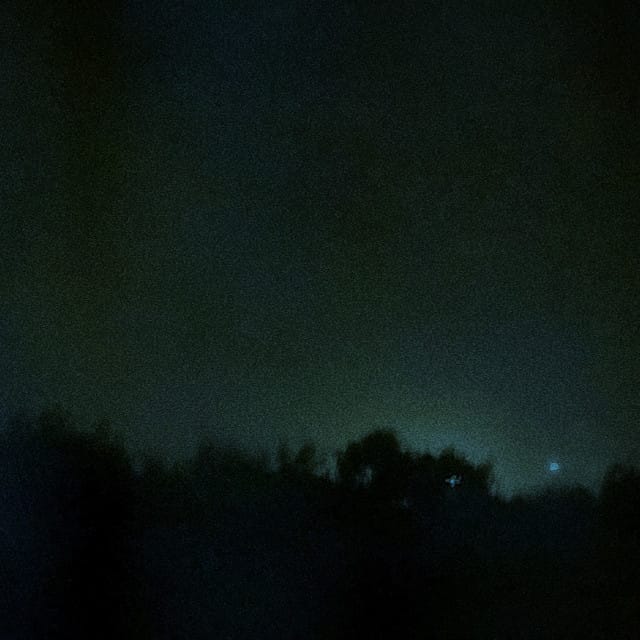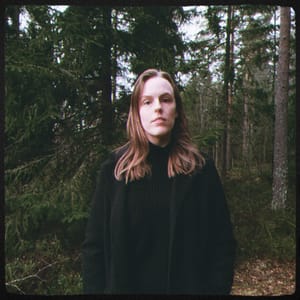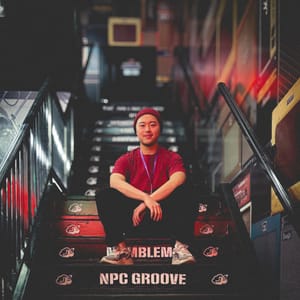
#007 - Hillscus
Welcome to our interview series, where we interview emerging creatives all over the globe!
Today, we will be interviewing Hillscus, a Lo-Fi producer and founder of Svalur Music. With over 64,000 monthly listeners on Spotify, Hillscus blends elements of ambient and neoclassical music, striving to expand the boundaries of the lo-fi genre. He has collaborated with artists around the world, including moat and Ghøst.
With that being said, we will now dive into the questions we have prepared for Hillscus!
Hey, Hillscus! We appreciate your interest in taking part in the FTWS interview series. How are you feeling today?
Busy, but that’s normal. Just wrapped up the fiscal year-end for my company, so I’ve been balancing business and music, it’s a lot but I wouldn’t want it any other way.
Let's begin with our first question: Can you describe the steps you take to create a track? Do you begin with a melody, a rhythm, or a particular sound?
It always starts with sound. I don’t sit down thinking, ‘I need to make a track today.’ I just mess around with VSTs until something clicks. I don’t play instruments, so everything happens in FL Studio’s piano roll. I shape melodies there and build from that one idea. It’s instinctive. If it feels right, I go with it.
What production techniques and equipment are commonly used to achieve the signature lo-fi sound, and how have these evolved over time?
"Lo-fi isn’t just dusty samples and tape hiss anymore—it’s evolved. I’ve been pushing my sound design further, using synths like Pigments and Serum instead of sticking to the usual presets. The drums stay lo-fi, but everything else? That’s where I experiment.
Life really opened my eyes to breaking the ‘rules’ of lo-fi. He doesn’t just stick to the standard sounds, and that pushed me to do the same. And moat of his guitar has become a signature in my tracks. I don’t force it, though. If it works, it works. That’s how I approach everything.
How has lo-fi music's popularity on streaming platforms and study playlists influenced the genre's development and the types of artists who create it?
It’s a double-edged sword. On one hand, it has put lo-fi in front of millions of people. On the other hand, it’s made it easy for people to treat it like background noise. I don’t make music to be ignored.
What I do love, though, is how lo-fi has brought artists together worldwide. I’ve built real friendships with people I’ve never even met in person—we bounce ideas, collaborate, and create. The genre peaked during lockdown, and I wasn’t part of that first wave, so the early guys would answer this better. But from what I’ve seen, lo-fi is one of the most supportive and collaborative spaces in music today.
What has been the most difficult obstacle you have faced in your music life thus far, and how did you resolve it?
Labels that lack transparency. Some of them take recoupments for things that don’t even make sense, and a lot of artists just go with it because they don’t know any better. I don’t if something doesn’t add up, I push back. If they won’t explain, I'll walk. Simple as that.
That’s one of the reasons I started Svalur Music. I wanted to take control of my own music and build something where artists don’t have to deal with this kind of thing. I’ve learned that if you don’t ask questions, you’ll end up paying for it later.
Does your production style draw inspiration from artists or genres beyond lo-fi music, and have you worked with artists from diverse backgrounds?
Absolutely. Ambient and neoclassical music are on another level when it comes to depth and patience. I love synths and those genres push sound design in ways that lo-fi doesn’t. They also teach you how to listen, which changes how you create.
The demands of the music industry can be high. How do you strike a good balance between your personal well-being, creativity and performance?
I don’t let industry demands dictate how or when I create. Some months, I make a lot of music. Other months, nothing at all. I don’t force it. That’s probably why my music has never felt rushed or made just to fit a playlist.
That said, seeing the wave of dark ambient music flood social media, I created my alias, fall, and if I’m being honest, that was me chasing a trend. But I’ve realized that following trends for the sake of it doesn’t make sense. Now, my focus is on turning that project into something deeper and more meaningful.
I recently dropped a collab with Ghøst, and our synergy is still unfolding. We’re creating something special in that space, and this time, it’s not about following a wave—it’s about shaping something real.
That concludes our interview with you. Thank you so much for participating! Would you like to share any new music or plans over the next few months?
A lot. This year is all about full independence—owning everything, making every call myself. Moat and I launched a playlist as part of a bigger strategy, and we’ve got something planned that we’ll announce soon.
Svalur Music is also a huge focus. I’m not just thinking about releases, I’m thinking long-term—how to actually push independent artists forward in a way that makes sense. This next phase is going to be big.
Follow Hillscus:
Get Featured: https://forms.gle/iMEu3NouFWTWKwo78
Donate: https://paypal.me/NaolDenko










